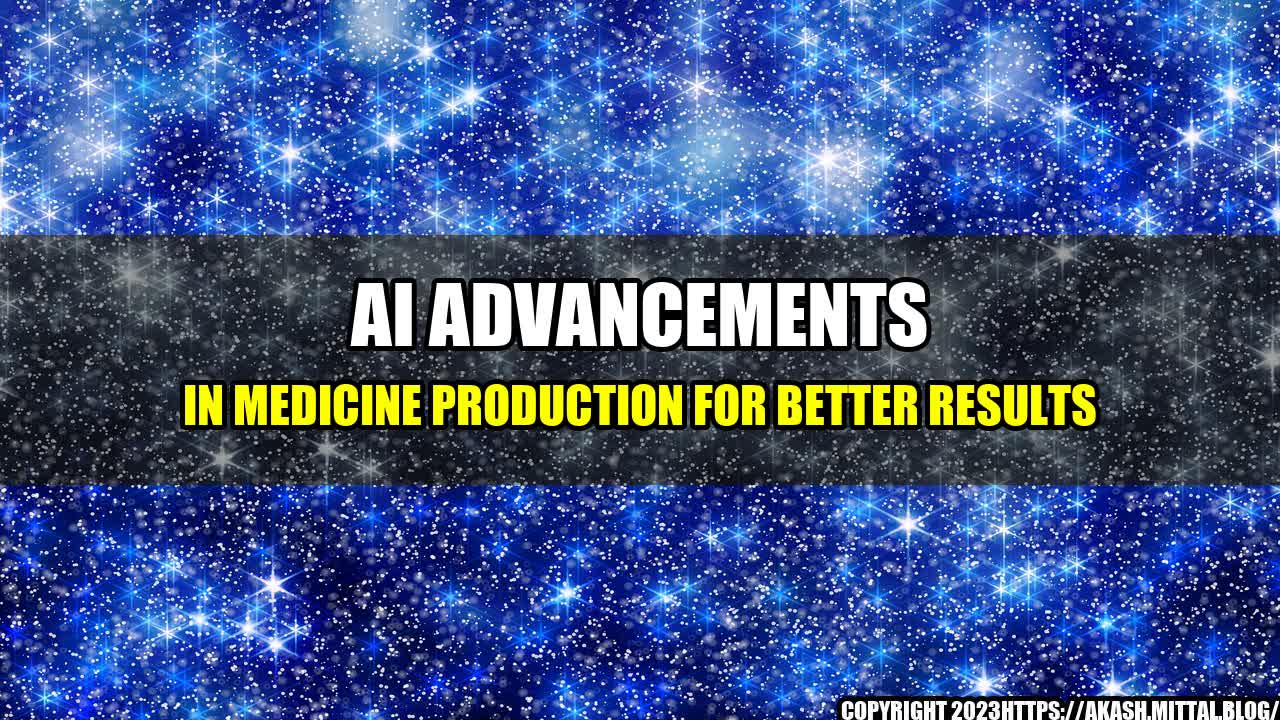
When you hear the term "artificial intelligence," you might first think of sci-fi movies or robots that seem to have personalities. But the technology has advanced by leaps and bounds over the past decade, and it has huge potential to improve various industries, including medicine. Artificial intelligence (AI) is already being used to create better, more potent medicines.
Imagine that an individual has a particular disease, and a doctor needs to prescribe a medication to treat it. The general solution for this would be prescribing a medication with the most significant probability of effectiveness based on a few key factors. However, the data points that determine the potential effectiveness of a medicine are numerous, and the traditional approach may not consider all of them.
However, with the assistance of AI, a more precise medication prescription can be made by synthesizing data points that would be both unrelated and inconceivable for a human observer. Being able to monitor and evaluate molecular information at the cellular level makes accurate analysis of molecular complexes and drug effects much simpler.
AI can optimize the medical industry in three significant ways:
The AI technology leverages its capability to learn from data, covering small molecular interactions to clinical data and broad patient populations to develop powerful predictive models. Researchers can generate complex hypotheses and understand difficult biological mechanisms more comprehensively, making the drug discovery process much more efficient.
Contributing to traditional screens like models, cell assays, datasets, and phenotypic models, AI brings about a predictive and holistic view of the molecule's whole life cycle. Additionally, AI-driven screening predicts potential drugs that suit the system's specific needs better, giving an advantage that even the brightest scientific minds cannot compete with alone.
AI is equipped with a vast amount of data processing facilities that conventional methods cannot perform. Medicines synthesized with machine learning have been successful in treatments for hepatitis, glioblastoma, and other advanced conditions. With the help of AI, tough molecular problems that scholars and researchers could only approach from a theoretical standpoint have become testable. It has unlocked new avenues for dynamically advanced drug discovery.
There are several success stories that demonstrate the practical potential of AI in the development of medicines:
The future of AI in medicine is exciting and has the potential for significant breakthroughs. Here are three key takeaways:
References:
Hashtags: #AIinMedicine #ArtificialIntelligence #DrugDiscovery #MedicineCreation #Healthcare #MachineLearning #COVID19Treatment
Article Category: Artificial Intelligence
Curated by Team Akash.Mittal.Blog
Share on Twitter Share on LinkedIn